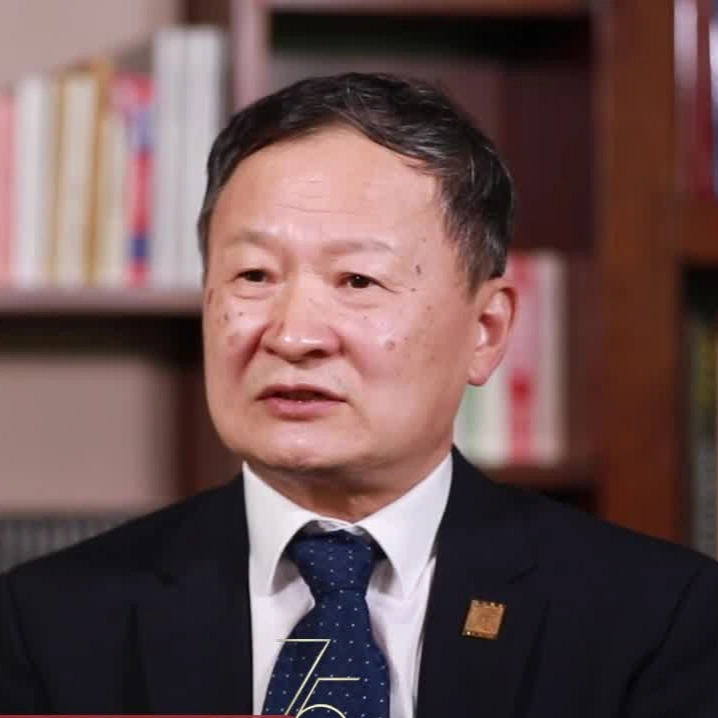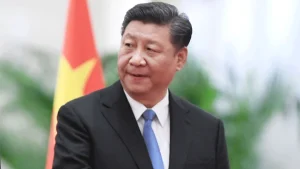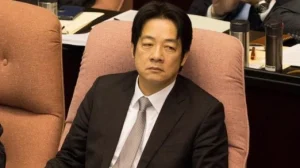Looking at the US Elections With Russia’s New Defense Minister
 Andrey Removich Belousov is a Russian economist and politician, serving as the Minister of Defence since May 2024.
Andrey Removich Belousov is a Russian economist and politician, serving as the Minister of Defence since May 2024.
On May 12, Putin appointed Andrey Belousov, Russia’s former First Deputy Prime Minister, as the new Minister of Defense. Why would an economist with no military service experience be chosen for such a position amid the ongoing Russia-Ukraine conflict? Military strategist Prof. Wang Xiangsui’s analysis reveals that the appointment marks Russia’s strategic pivot in the new phase of the conflict, with significant implications for the US elections. Here are his thoughts:
While many media reports focus on Belousov’s lack of military experience, few have noted his success in countering Western economic sanctions while serving as deputy prime minister. This indicates a great deficiency in understanding of the essence of the Russia-Ukraine conflict, and, consequently, its future trajectory.
Deng Xiaoping, who directed numerous battles and served in China’s top leadership, once said that logistics determines the course of war. In today’s context, we can say that a country’s economy determines the course of war. Russia is now at a crossroads where the relationship between its economy and its defense budget needs closer examination. Considering Russia’s hefty defense budget which is already takes up 6.7% of its GDP, the continued support to Ukraine from the United States in hopes of prolonging the war, and the NATO Secretary-General’s nonchalance about another five years of the Ukraine-Russia conflict, the long-term nature of the Russia-Europe conflict seems inevitable.
When I was invited to attend the Multipolarity Forum in Moscow this March, I noticed that Russia didn’t fully commit its economy to war. I’d say that despite the initial ambition for a quick victory in the early stages of the conflict, Putin now realizes it’s more of a tug-of-war where opponents also have a say in which cards to play.
What cards are his opponents putting down? Biden’s recent $60 billion aid package for Ukraine sends a clear signal that the US cannot accept a complete Ukrainian defeat, at least not before the US elections. If Russia continues to pursue a quick victory, it will need to commit more resources and troops, thereby weakening Russia’s national capabilities as the US hopes.
On the frontline, Russia has already gained the upper hand, and it is unlikely that Ukraine will have the chance to turn the tide. Therefore, as long as Russia maintains military pressure on Ukraine while enhances its own economy, it can draw Ukraine into a favourable war of attrition. To pave the way for ultimate victory, Russia is already focusing on restoring its industrial manufacturing capacity, especially in the military sector. What Russia needs now is a Defense Minister who is knowledgeable about economics and adept at navigating American financial sanctions to secure the prospect of ultimate victory.
For the United States, this is exactly the scenario it had hoped to avoid.
On one hand, this is extremely detrimental to the global status of the U.S. dollar. When the U.S. expelled Russia from the SWIFT network, Russia was compelled to develop its own transaction channels, resulting in trades with China settled in Russian rubles or Chinese yuan. To the dismay of the West, the more it hopes to delay Ukraine’s defeat and the more sanctions it imposes on Russia, the more decoupling between Russia’s oil and grain from the U.S. dollar will occur, leading to an embrace of the Chinese Yuan instead.
At last year’s BRICS summit, an advisor to President Putin proposed establishing an alternative to the SWIFT system within BRICS countries. While challenging due to the need for coordination among multiple nations, such a system is necessary and beneficial for both China and Russia. It could also further internationalize the Chinese Yuan.
The need for de-dollarization is made all the more imperative by American politicians’ recent visits to China, such Antony Blinken and Janet Yellen, who came with an attempt to threaten China regarding its future engagement with Russia by intervening even in trade between private companies between China and Russia. Therefore, I suggest that China’s banking system envision its future not solely based on technicalities but rather in the context of great power competition. Even if only a few countries were to join the effort of de-dollarization, it could help bypass the dollar in oil trade among China, Iran, and other Central Asian countries, posing a deterrence to American financial hegemony. Moreover, if the U.S. were to resort to financial sanctions against China, this initiative could also serve as an important buffer.
On the other hand, the Ukraine quagmire is damaging Biden’s political career. The Ukraine war is a result of Biden administration’s delicate orchestration. Admitting Ukraine’s defeat would signify a strategic failure for Biden’s team, which is highly unfavorable for Biden’s election prospects. Therefore, until the US election is over, more money from American taxpayers will be pumped into PR projects aimed at delaying the acknowledgement of Ukraine’s ultimate defeat.
With regard to the Ukraine war, the interest of the Biden administration is parting ways with those of the United States. To retain its minimal interests in Europe, such as Hunter Biden’s company in Ukraine, the Biden administration is leading the US to risk its future of global hegemony by engaging in a full confrontation, or even a proxy war, with a country the size of Russia.
Thus, Trump is likely assessing the situation from the perspective of national interests when he boldly claims that he could end the Russia-Ukraine conflict within 24 hours. We can also imagine that a president with a background as a real estate businessman would likely have more in common with an economist.
Editor: Charriot Zhai



